Filter by

Heidegger and Development in the Global South
Taking the Heideggerian critical ontology of technology as its base, this volume looks at postcolonial modernization and development in the global south as the worldwide expansion of the western metaphysical understanding of reality. We live today in an increasingly globalizing technological society that Martin Heidegger described in the middle of the last century as ‘the planetary imperialis…
- Edition
- -
- ISBN/ISSN
- 978-81-322-2303-0
- Collation
- XIX, 309
- Series Title
- -
- Call Number
- 300 GEO h
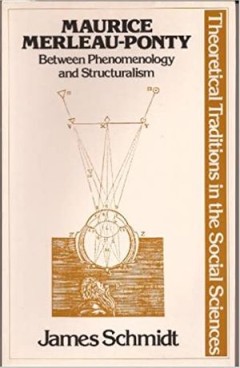
Maurice Merleau-Ponty : Between phenomenology and structuralism
This is a study of Maurice Merleau-Ponty's social thought, its often troubled relations with Edmund Husserl's phenomenological philo-sophy, and its equally ambivalent stance toward those approaches in the human sciences which take Ferdinand de Saussure's struc-tural linguistics as their point of departure. It seeks to do justice to one of the more complex and elusive figures in contemporary phi…
- Edition
- -
- ISBN/ISSN
- 9780312523107
- Collation
- -
- Series Title
- -
- Call Number
- 194 SCH m
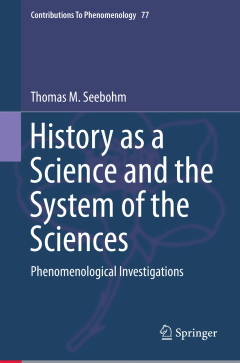
History as a Science and the System of the Sciences: Phenomenological Investi…
This volume goes beyond presently available phenomenological analyses based on the structures and constitution of the lifeworld. It shows how the science of history is the mediator between the human and the natural sciences. It demonstrates that the distinction between interpretation and explanation does not imply a strict separation of the natural and the human sciences. Finally, it shows that…
- Edition
- 1
- ISBN/ISSN
- 978-3-319-13586-1
- Collation
- XVII, 443
- Series Title
- Contributions to Phenomenology
- Call Number
- 100 SEE h

Horizons of Authenticity in Phenomenology, Existentialism, and Moral Psycholo…
This volume centers on the exploration of the ways in which the canonical texts and thinkers of the phenomenological and existential tradition can be utilized to address contemporary, concrete philosophical issues. In particular, the included essays address the key facets of the work of Charles Guignon, and as such, honor and extend his thought and approach to philosophy. To this end, the four…
- Edition
- 1
- ISBN/ISSN
- 978-94-017-9441-1
- Collation
- XIII, 372
- Series Title
- Contributions to Phenomenology
- Call Number
- 150 HOR

Aesthetics and the Embodied Mind: Beyond Art Theory and the Cartesian Mind-Bo…
The project of naturalizing human consciousness/experience has made great technical strides (e.g., in mapping areas of brain activity), but has been hampered in many cases by its uncritical reliance on a dualistic “Cartesian” paradigm (though as some of the authors in the collection point out, assumptions drawn from Plato and from Kant also play a role). The present volume proposes a versio…
- Edition
- 1
- ISBN/ISSN
- 978-94-017-9379-7
- Collation
- XIII, 330
- Series Title
- Contributions to Phenomenology
- Call Number
- 111.8 AES a
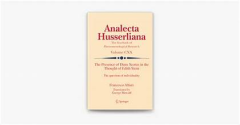
The Presence of Duns Scotus in the Thought of Edith Stein
This book examines the phenomenological anthropology of Edith Stein. It specifically focuses on the question which Stein addressed in her work Finite and Eternal Being: What is the foundational principle that makes the individual unique and unrepeatable within the human species? Traditional analyses of Edith Stein’s writings have tended to frame her views on this issue as being influenced by …
- Edition
- 1
- ISBN/ISSN
- 978-3-319-15663-7
- Collation
- XV, 184, 6 b/w illustrations
- Series Title
- Analecta Husserliana
- Call Number
- -
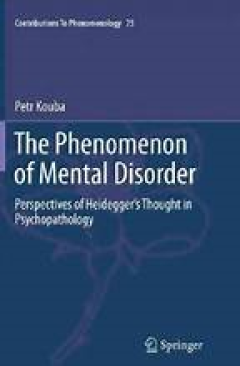
The Phenomenon of Mental Disorder
This book provides a critical introduction to Heidegger’s impact on psychiatry and psychology, and has a focus on the application of his philosophy to psychiatry. This is a complete revision of Heidegger’s existential philosophy in the light of psychopathological phenomena. Readers will find here a philosophical inquiry into the problem of mental disorder, which shows Heidegger’s own phil…
- Edition
- -
- ISBN/ISSN
- 978-3-319-10323-5
- Collation
- -
- Series Title
- XI, 214 , 2 b/w illustrations
- Call Number
- -
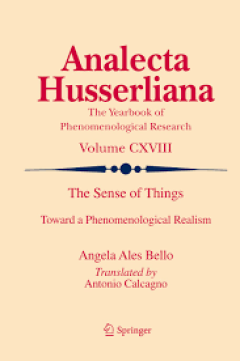
The Sense of Things Toward a Phenomenological Realism
This book proposes a new interpretative key for reading and overcoming the binary of idealism and realism. It takes as its central issue for exploration the way in which human consciousness unfolds, i.e., through the relationship between the I and the world—a field of phenomenological investigation that cannot and must not remain closed within the limits of its own disciplinary borders. The b…
- Edition
- -
- ISBN/ISSN
- 978-3-319-15395-7
- Collation
- -
- Series Title
- -
- Call Number
- -
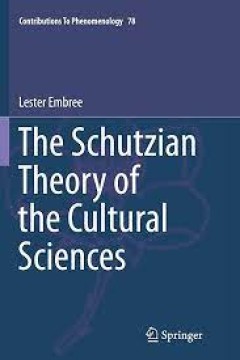
The Schutzian Theory of the Cultural Sciences
This work is devoted to developing as well as expounding the theory of the cultural sciences of the philosopher Alfred Schutz (1899-1959). Drawing on all of Schutz’s seven volumes in English, the book shows how his philosophical theory consists of the reflective clarifications of the disciplinary definitions, basic concepts, and distinctive methods of particular cultural sciences as well as t…
- Edition
- -
- ISBN/ISSN
- 978-3-319-13653-0
- Collation
- -
- Series Title
- -
- Call Number
- -
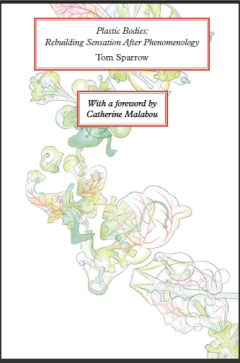
Plastic Bodies : Rebuilding Sensation After Phenomenology
Sensation is a concept with a conflicted philosophical history. It has found as many allies as enemies in nearly every camp from empiricism to poststructuralism. Polyvalent, with an uncertain referent, and often overshadowed by intuition, perception, or cognition, sensation invites as much metaphysical speculation as it does dismissive criticism. The promise of sensation has certainly not been …
- Edition
- -
- ISBN/ISSN
- 13 978-1-78542-001-6
- Collation
- -
- Series Title
- -
- Call Number
- 150 SPA p
 Computer Science, Information & General Works
Computer Science, Information & General Works  Philosophy & Psychology
Philosophy & Psychology  Religion
Religion  Social Sciences
Social Sciences  Language
Language  Pure Science
Pure Science  Applied Sciences
Applied Sciences  Art & Recreation
Art & Recreation  Literature
Literature  History & Geography
History & Geography